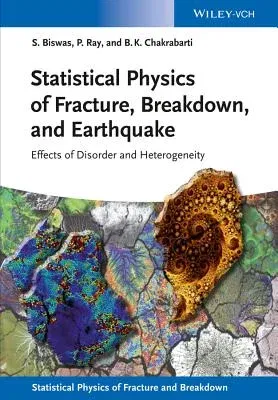Soumyajyoti Biswas
(Author)Statistical Physics of Fracture, Breakdown, and Earthquake: Effects of Disorder and HeterogeneityHardcover, 10 August 2015

Qty
1
Turbo
Ships in 2 - 3 days
In Stock
Free Delivery
Cash on Delivery
15 Days
Free Returns
Secure Checkout

Part of Series
Statistical Physics of Fracture and Breakdown
Print Length
344 pages
Language
English
Publisher
Wiley-Vch
Date Published
10 Aug 2015
ISBN-10
3527412190
ISBN-13
9783527412198
Description
Product Details
Book Format:
Hardcover
Country of Origin:
SG
Date Published:
10 August 2015
Dimensions:
24.89 x
17.27 x
2.29 cm
ISBN-10:
3527412190
ISBN-13:
9783527412198
Language:
English
Location:
Berlin
Pages:
344
Publisher:
Weight:
884.5 gm